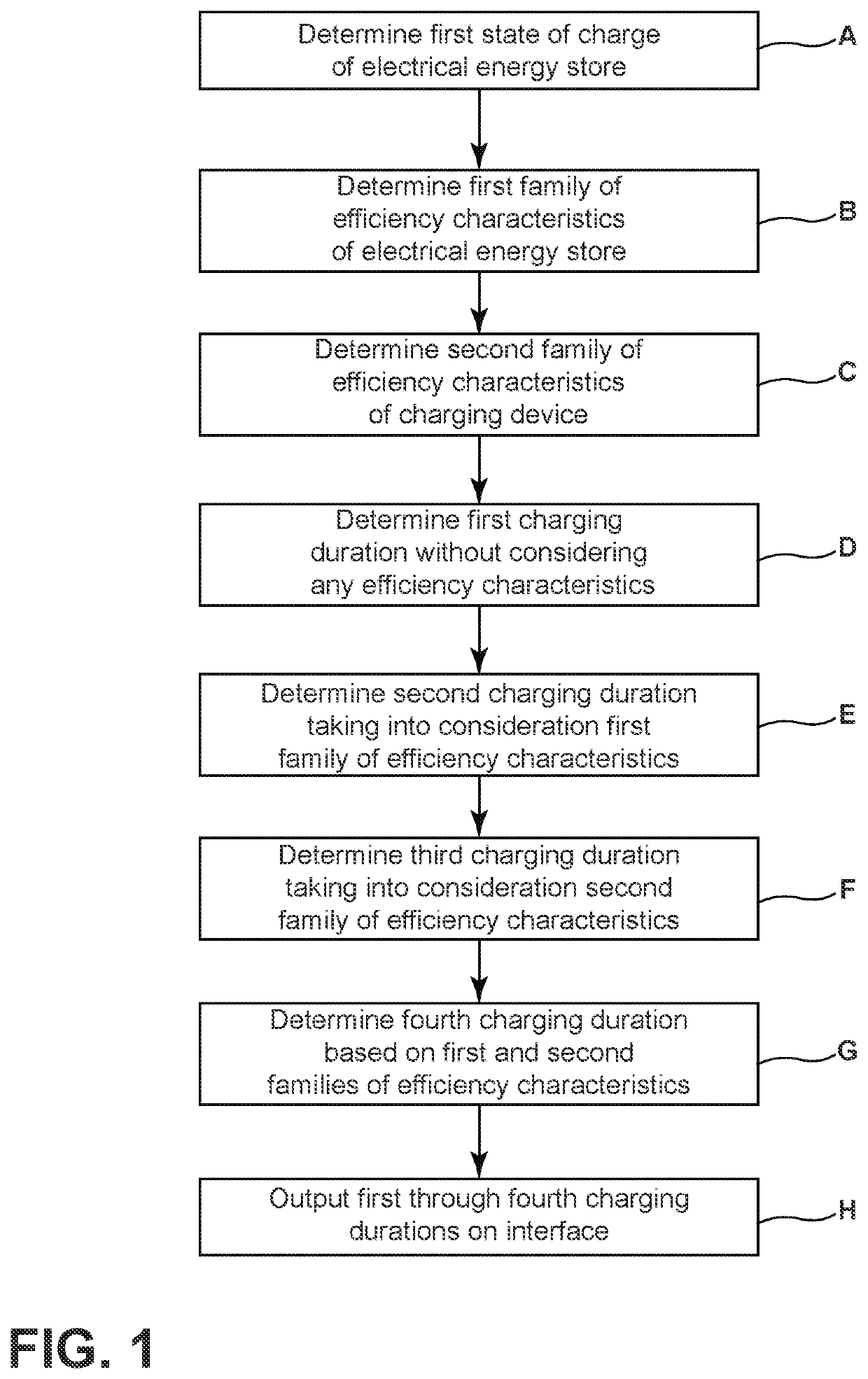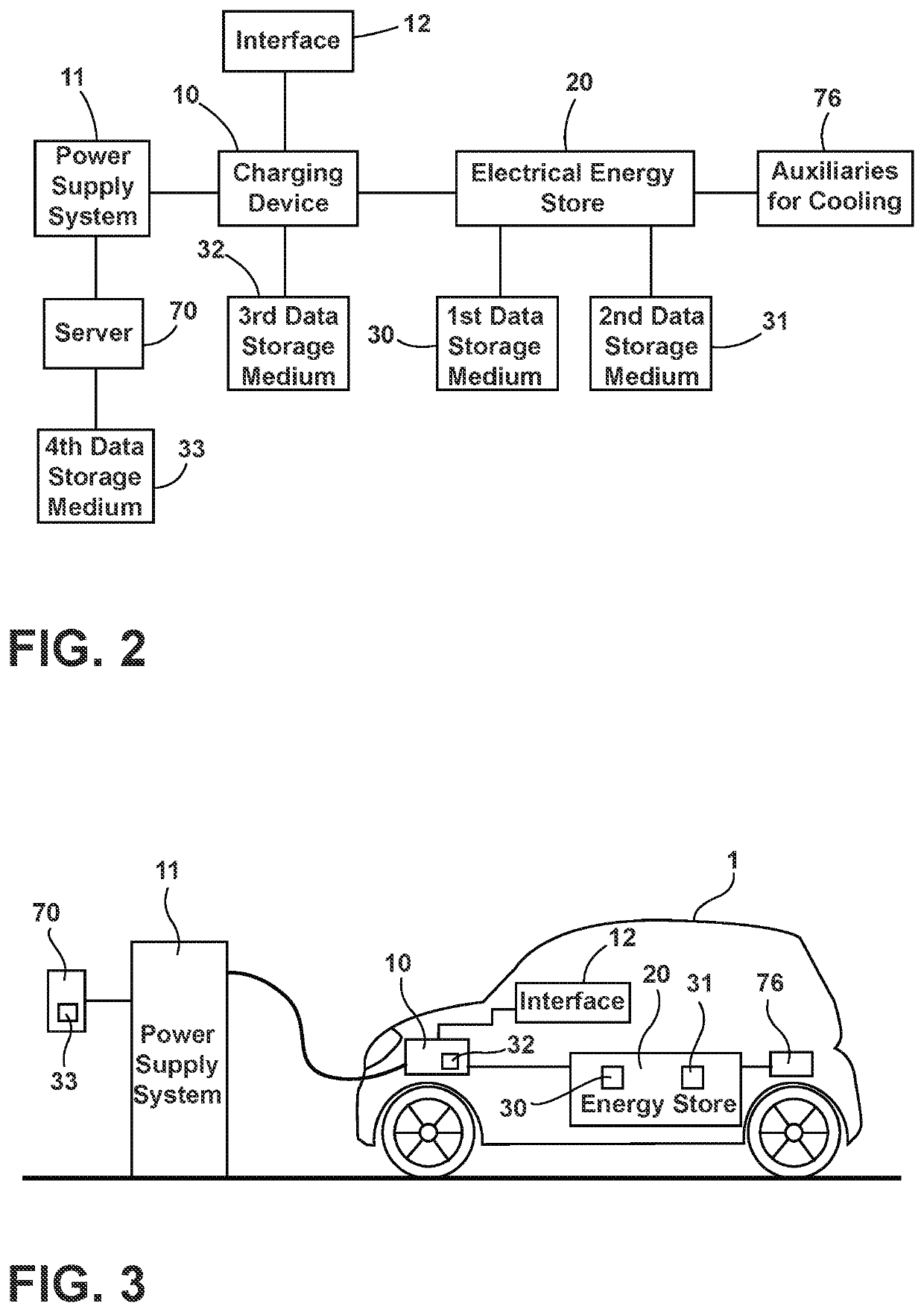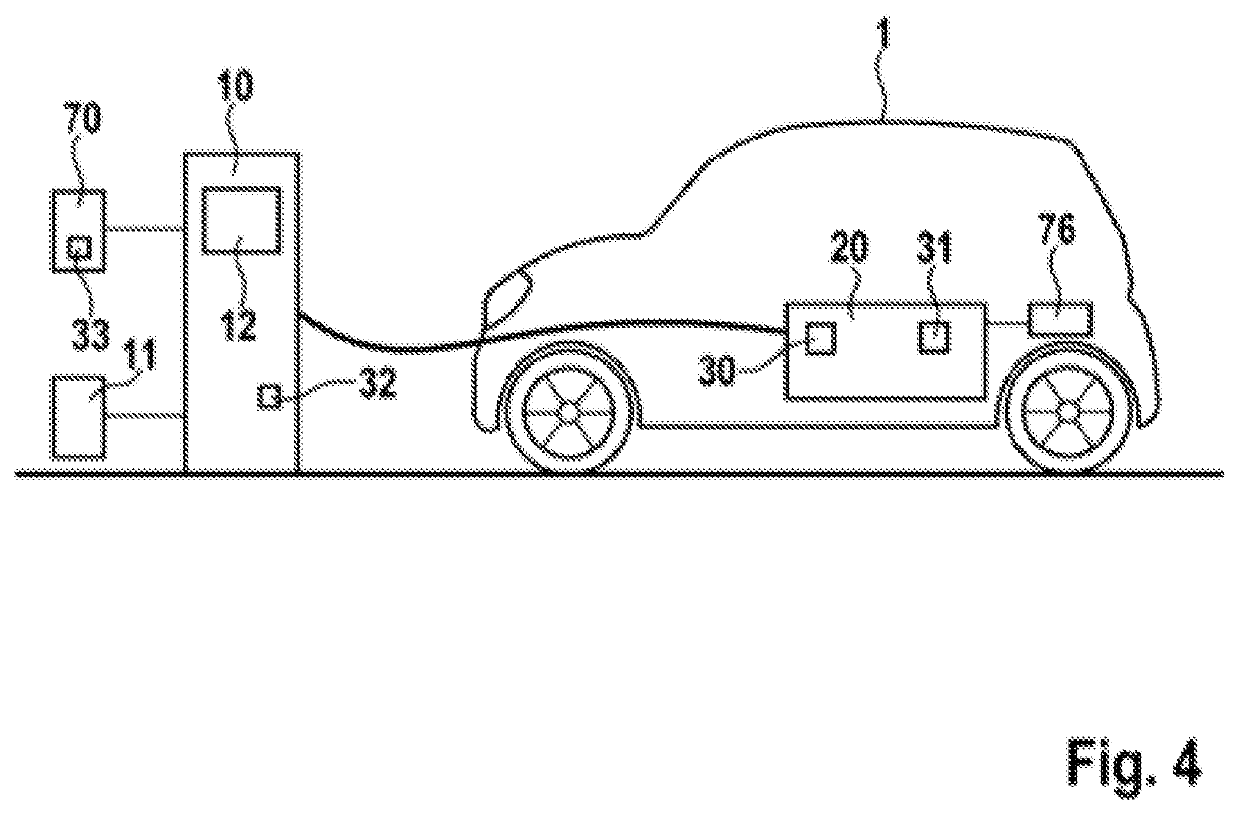Method for operating a charging device
a charging device and charging circuit technology, applied in the direction of battery data exchange, exchanging data chargers, transportation and packaging, etc., can solve the problems of excessively high charging voltage, damage to electrical energy stores, and limited power drawn from the power supply system for charging, so as to achieve reliable charging operation, cost advantage, energy efficiency
- Summary
- Abstract
- Description
- Claims
- Application Information
AI Technical Summary
Benefits of technology
Problems solved by technology
Method used
Image
Examples
Embodiment Construction
[0019]All of the figures are merely schematic illustrations of the method according to the invention or parts thereof in accordance with exemplary embodiments of the invention. In particular, distances and size relationships are not reproduced true to scale in the figures. Corresponding elements have been provided with the same reference numerals in the various figures.
[0020]FIG. 1 shows a schematic illustration of the method according to the invention for charging an electrical energy store / electrical energy storage device 20. In a first method step A, the charging device 10 communicates with the electrical energy store 20 and determines the first state of charge 22 thereof. In the subsequent second method step B, the charging device 10 determines the first family of efficiency characteristics 40 of the electrical energy store 20. In a third method step C, the charging device 10 determines a second family of efficiency characteristics 41 of the charging device 10. In a fourth metho...
PUM
| Property | Measurement | Unit |
|---|---|---|
| time | aaaaa | aaaaa |
| charge | aaaaa | aaaaa |
| power losses | aaaaa | aaaaa |
Abstract
Description
Claims
Application Information
 Login to View More
Login to View More - R&D
- Intellectual Property
- Life Sciences
- Materials
- Tech Scout
- Unparalleled Data Quality
- Higher Quality Content
- 60% Fewer Hallucinations
Browse by: Latest US Patents, China's latest patents, Technical Efficacy Thesaurus, Application Domain, Technology Topic, Popular Technical Reports.
© 2025 PatSnap. All rights reserved.Legal|Privacy policy|Modern Slavery Act Transparency Statement|Sitemap|About US| Contact US: help@patsnap.com



